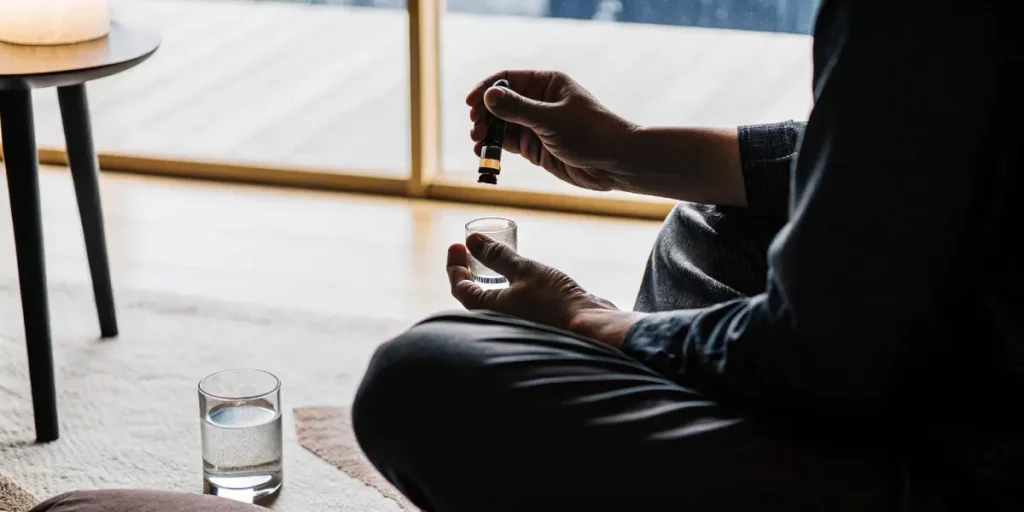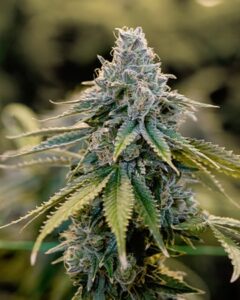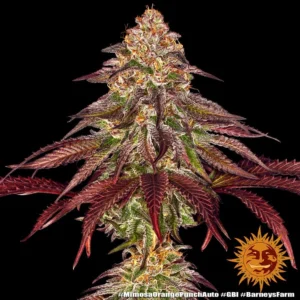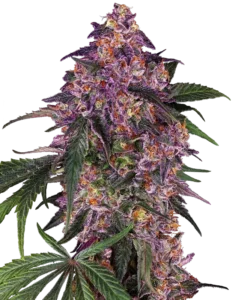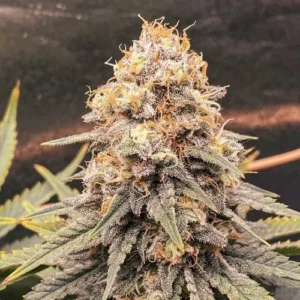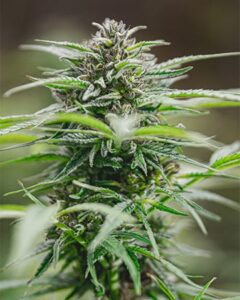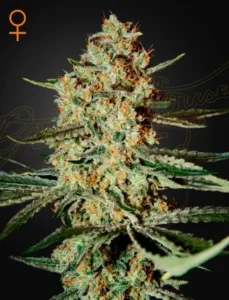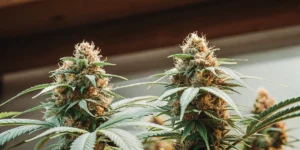Taking CBD while on antibiotics is a question many users ponder. You might be using antibiotics for an infection and wondering if you can continue enjoying the benefits of CBD. While both substances can be beneficial, understanding how they might interact is crucial.
CBD, or cannabidiol, is a compound found in cannabis plants. It’s known for its potential therapeutic effects. Users often take it to relieve anxiety, pain, and other conditions. But what happens when you mix it with antibiotics?
Recommended Strains
Master Yoda Autoflower
|
|
THC | 25% - 28% (High) |
|
|
Lineage | (OG Kush x Master Kush) x Ruderalis |
|
|
Type | Autoflowering |
|
|
Height | 3.94 ft | 1.2 m |
|
|
Yield | Medium |
|
|
Yield Indoor | 1.31 oz/ft² | 400 g/m² |
|
|
Yield Outdoor | 15.87 oz/plant | 450 g/plant |
|
|
Life Cycle | 9 - 10 weeks |
|
|
Phenotype | 40% Indica / 60% Sativa |
|
|
Effects | Euphoric, Happy, Relaxed |
|
|
Flavors | Citrus, Pine, Sweet, Woody |
Mimosa X Orange Punch Auto
|
|
THC | 24% - 25% (High) |
|
|
Lineage | Mimosa Evo x Orange Punch |
|
|
Type | Autoflowering |
|
|
Height | 3.94 ft | 1.2 m |
|
|
Yield Outdoor | 9.88 - 12.35 oz/plant | 280 - 350 g/plant |
|
|
Life Cycle | 9 - 11 weeks |
|
|
Phenotype | 60% Indica / 40% Sativa |
|
|
Effects | Creative, Energetic, Happy |
|
|
Flavors | Orange, Sweet, Citrus |
Antibiotics are medicines used to fight bacterial infections. They work by killing bacteria or preventing them from multiplying. When considering taking CBD with antibiotics, it’s essential to look at any potential interactions and effects on antibiotic efficacy.
CBD Interaction with Antibiotics
CBD interaction with antibiotics depends on various factors. These include the type of antibiotic and the user’s individual response. Some antibiotics may interact with CBD, altering their effectiveness or causing side effects.
Certain antibiotics are processed by the liver, where CBD is also metabolized. This could lead to changes in how each substance is broken down, possibly affecting their levels in the body. It’s always a good idea to consult a healthcare professional if you’re considering taking CBD while on antibiotics.
Moreover, the method of consuming CBD can also influence its interaction with antibiotics. For instance, ingesting CBD oil might result in a different interaction profile compared to vaping or topical application. Knowing these nuances can help manage expectations and outcomes.
It’s important to recognize the role of individual health conditions when considering CBD interaction with antibiotics. Factors such as liver function, overall health status, and the presence of other medications can significantly alter how CBD and antibiotics interact in the body.
Taking CBD with Antibiotics Safety
When it comes to safety, taking CBD with antibiotics requires careful consideration. Each person’s body reacts differently. Some might have no issues, while others could experience side effects. Monitoring your body’s response is key.
For example, if you’re taking antibiotics that cause drowsiness, adding CBD could increase this effect. It’s important to be aware of how you feel and adjust your dosage if necessary. Always start with a low dose of CBD to see how your body reacts.
Another aspect of taking CBD with antibiotics safety is the timing of doses. Spacing out the intake of CBD and antibiotics might reduce the risk of adverse interactions, providing a safer experience. Consultation with a healthcare provider can offer guidance on optimal timing.
Additionally, individuals should consider the purity and source of their CBD products. High-quality CBD from reputable sources minimizes the risk of contamination and ensures that what you’re consuming is safe and effective alongside antibiotics.
Effects of CBD on Antibiotic Efficacy
CBD could potentially affect the efficacy of antibiotics. This is because both substances might compete for the same enzymes in the liver. If CBD slows down how quickly your body processes antibiotics, it could lead to higher levels of the medication.
Higher levels of antibiotics might enhance their effectiveness in fighting infections. However, this could also lead to increased side effects. On the flip side, if antibiotics are processed faster, they might become less effective. It’s a delicate balance.
Knowing the effects of CBD on antibiotic efficacy can help in making informed decisions about dosage adjustments. Regular blood tests might be recommended by healthcare providers to monitor the levels of antibiotics in the blood for optimal therapeutic outcomes.
Moreover, the effects of CBD on antibiotic efficacy might vary based on the type of antibiotic being used. Broad-spectrum antibiotics could interact differently compared to narrow-spectrum antibiotics, making it essential to consider the specific medication involved.
CBD and Antibiotic Drug Interactions
Potential drug interactions are an important consideration when combining CBD and antibiotics. Some antibiotics may have specific warnings about interactions with other substances. It’s vital to check these warnings before starting CBD.
One potential interaction is between CBD and antibiotics that affect the central nervous system. Combining these could amplify side effects like dizziness or confusion. Always be cautious and consult with a healthcare provider if you have concerns.
Besides to central nervous system effects, CBD and antibiotic drug interactions might also impact gastrointestinal systems, potentially causing nausea or changes in appetite. Recognizing these symptoms early can help in managing them effectively.
It’s also worth noting that the CBD and antibiotic drug interactions might necessitate changes in the administration method of either substance. Switching from oral to topical or intravenous routes may be considered to minimize interaction potential.
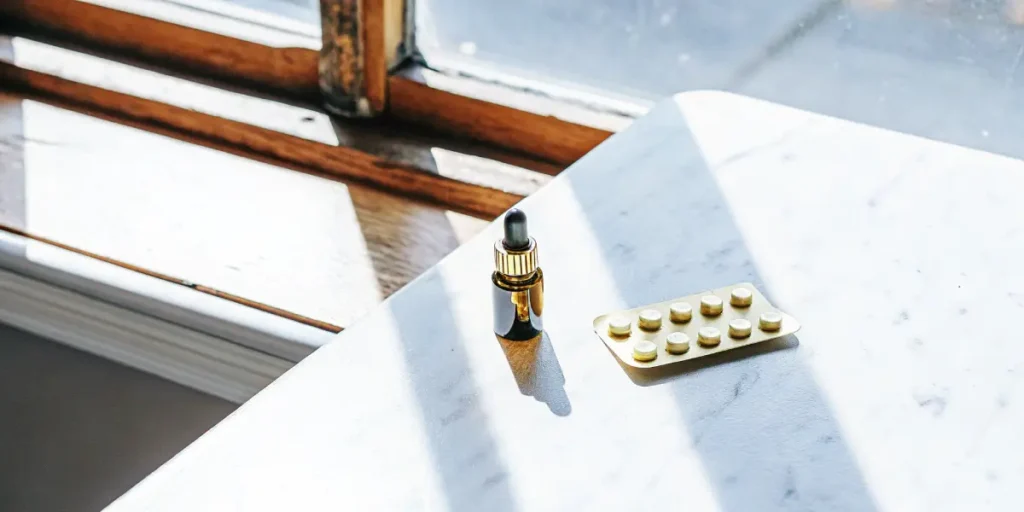
Can You Use CBD Oil on Antibiotics?
Yes, you can use CBD oil while on antibiotics, but it’s essential to do so with care. Start with a low dose and monitor how you feel. Everyone’s body chemistry is different, and what works for one person might not work for another.
Using CBD oil can be a great way to manage stress or discomfort while on antibiotics. Opt for a reliable strain like Northern Lights or CBD Mazar. It provides a calming effect that can complement the healing process.
Can you use CBD oil on antibiotics? Absolutely, but tailor your approach to your individual needs. Keep a journal of your experiences and share this information with your healthcare provider to help them guide you more effectively.
Additionally, exploring different forms of CBD, such as tinctures or capsules, might offer varying benefits when used with antibiotics. Each form has unique bioavailability, which can influence how the body absorbs and utilizes both CBD and antibiotics.
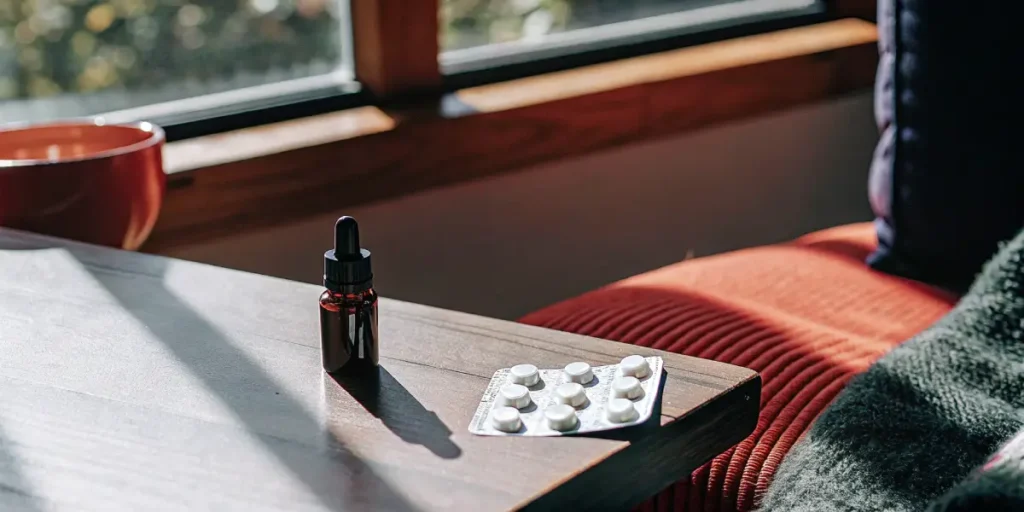
FAQs
Can I take CBD while on antibiotics without side effects?
Potential side effects can occur when taking CBD with antibiotics. These might include drowsiness, changes in appetite, or digestive issues. It’s crucial to monitor your body’s response and consult a healthcare provider if you notice anything unusual.
Starting with a low dose of CBD can help minimize potential side effects. Gradually increase as needed, always paying attention to how your body reacts. This cautious approach can help you enjoy the benefits of CBD safely.
Can I take CBD while on antibiotics without side effects? While it’s possible, it requires vigilance and communication with a healthcare professional. Staying informed about your body’s responses is key to maintaining a safe and effective regimen.
It’s also important to consider the broader context of your health condition. Certain pre-existing conditions might exacerbate side effects when taking CBD with antibiotics, making it essential to personalize your approach.
How can CBD affect antibiotic efficacy?
CBD might alter how your body processes antibiotics, potentially affecting their efficacy. If CBD slows the breakdown of antibiotics, it could lead to higher levels in your system, possibly enhancing effectiveness but also increasing side effects.
Conversely, if antibiotics are metabolized faster, their effectiveness might decrease. It’s important to find a balance and consult with a healthcare provider to ensure you’re getting the full benefit of your medication.
Monitoring the effects of CBD on antibiotic efficacy can be facilitated by regular health check-ups. These check-ups might include liver function tests and other assessments to ensure that both CBD and antibiotics are working harmoniously.
Furthermore, lifestyle factors such as diet and exercise can influence how CBD affects antibiotic efficacy. Maintaining a healthy lifestyle can support your body’s ability to process both substances effectively.
What are the risks of CBD and antibiotic drug interactions?
Drug interactions between CBD and antibiotics can pose risks, particularly if either substance affects the central nervous system. Combining them might amplify side effects like dizziness or confusion.
To minimize risks, always check for specific warnings related to your antibiotics. Consulting with a healthcare provider can provide valuable insights and help you make informed decisions.
The risks of CBD and antibiotic drug interactions are influenced by factors such as dosage, frequency of intake, and individual health conditions. Understanding these risks can help in creating a safer and more effective health plan.
In addition, keeping a close watch on any changes in symptoms or new side effects can aid in identifying potential interactions early. This proactive approach allows for timely adjustments to your treatment regimen.
Is it safe to use CBD oil while taking antibiotics?
Using CBD oil while taking antibiotics can be safe, but it’s important to proceed with caution. Start with a low dose and observe how your body reacts. This can help prevent unwanted side effects and ensure a positive experience.
Discussing your plan to use CBD oil with a healthcare provider is always a wise choice. They can offer personalized advice and help you navigate any potential interactions or side effects.
Is it safe to use CBD oil while taking antibiotics? Safety can be enhanced by opting for CBD products that are third-party tested for purity and concentration, ensuring you’re using a product that meets safety standards.
Additionally, consider integrating lifestyle changes such as stress management techniques and proper hydration to support your body’s ability to handle both CBD and antibiotics effectively.
Which CBD strains are best when taking antibiotics?
Choosing the right CBD strain can enhance your experience while on antibiotics. Strains like Blue Dream, White Widow, and Northern Lights are known for their balanced and calming effects.
These strains can complement the healing process, providing relief from stress or discomfort. Always ensure you’re using high-quality products from a trusted source like Global Green Genetics.
When considering which CBD strains are best when taking antibiotics, it’s beneficial to focus on strains with specific terpene profiles. These profiles can influence the overall experience and effectiveness of the CBD.
Moreover, experimenting with different strains in small quantities can help identify which ones offer the most benefit while minimizing any potential adverse interactions with antibiotics.

